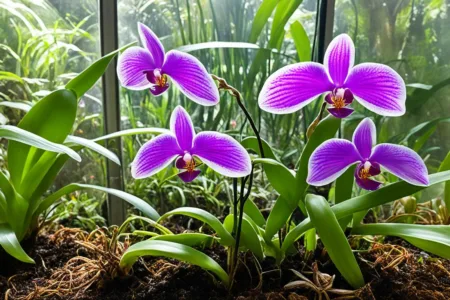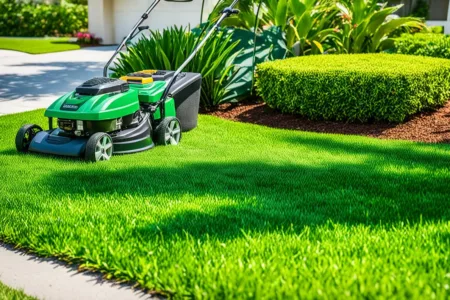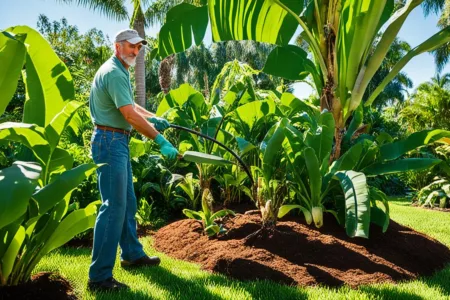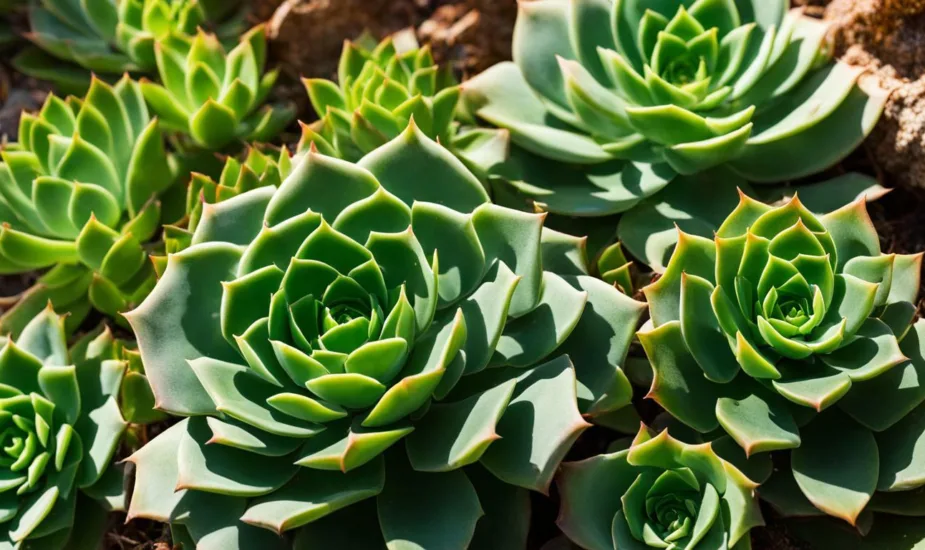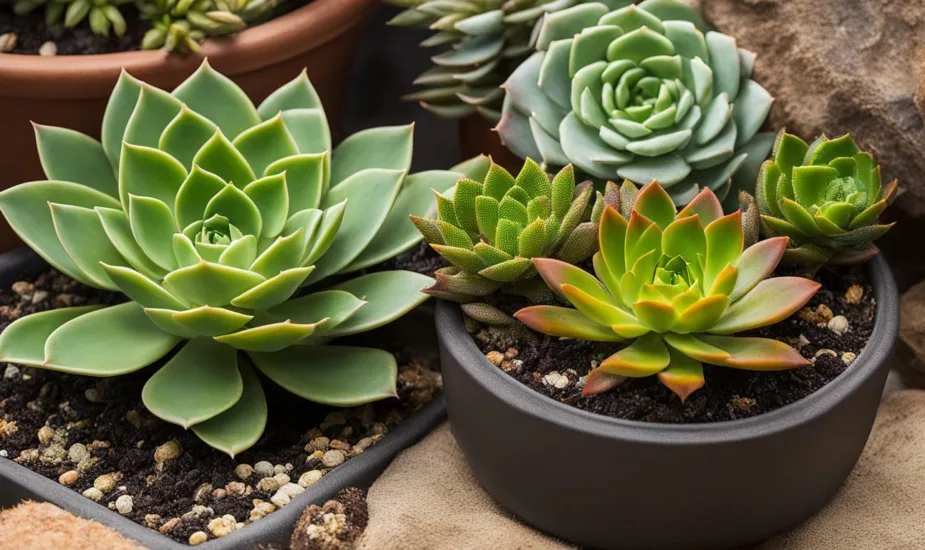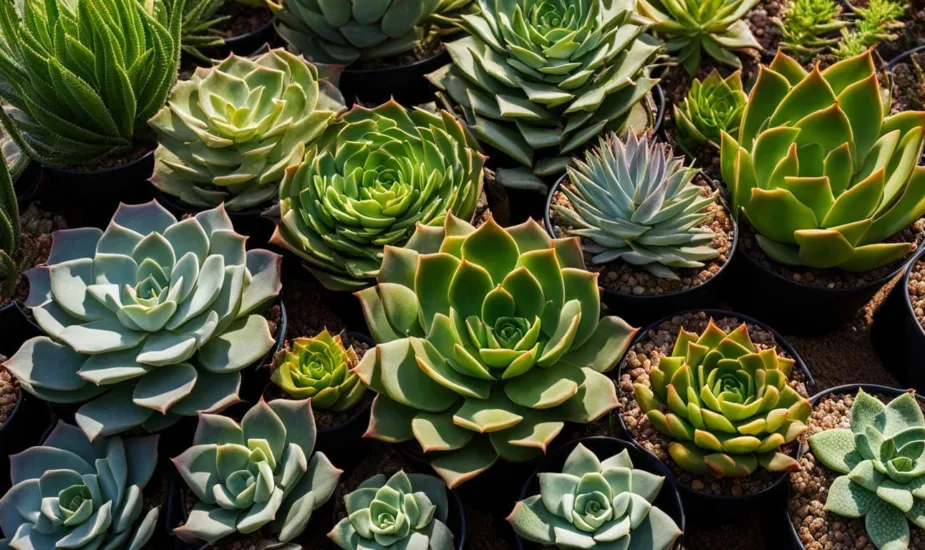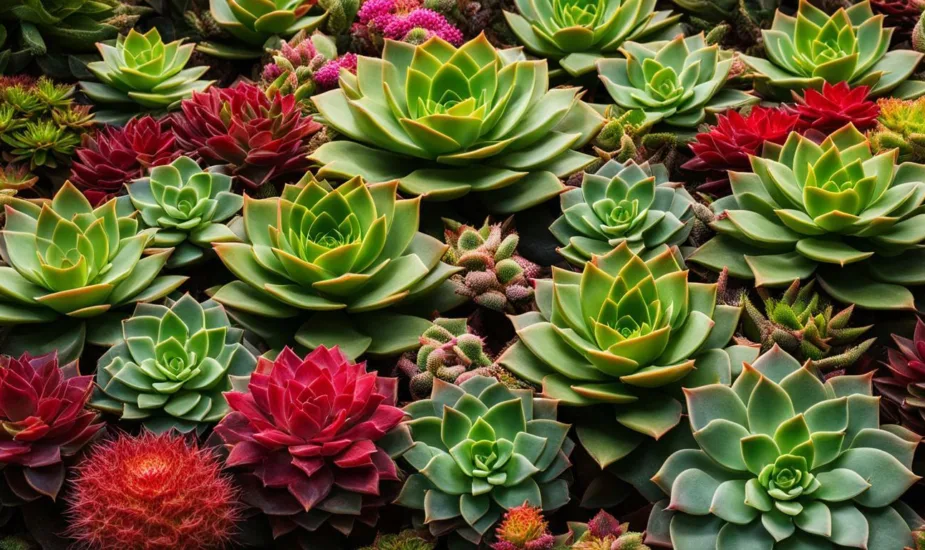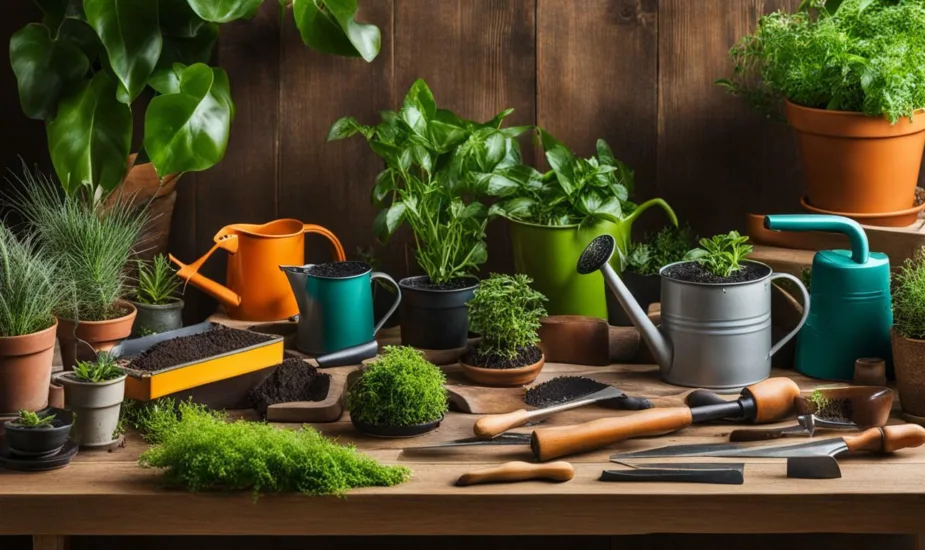Urban Gardening for Beginners: Tips & Tricks
Are you a beginner looking to dive into the world of urban gardening? Have you ever wondered how to grow your own vegetables in the limited space of a small city apartment or a suburban backyard? Look no further! In this article, I will share some valuable tips and tricks to help you get started on your urban gardening journey.

Urban gardening has gained immense popularity in recent years, as more and more people are discovering the joy and benefits of growing their own food in urban environments. Whether you have a balcony, a patio, or just a small corner in your home, you can create a thriving urban garden that not only provides fresh produce but also adds beauty to your living space.
In this guide, I will walk you through the essential steps of urban gardening, from planning your garden space to selecting the right plants and maintaining your garden. We will explore techniques and strategies specifically designed for small spaces, as well as sustainable practices that promote environmental stewardship.
So, if you’re ready to embark on this exciting urban gardening adventure, let’s get started!
Key Takeaways:
- Urban gardening offers a fantastic opportunity to grow your own food in small spaces.
- Planning is crucial for creating a successful urban garden.
- Choose the right plants for your urban oasis, considering space limitations and personal preferences.
- Invest in essential urban gardening supplies, such as quality soil, containers, and maintenance tools.
- Overcome urban gardening challenges by utilizing vertical spaces and practicing organic and sustainable techniques.
Understanding the Basics of Urban Gardening

Urban gardening is a popular practice in cities and suburbs, offering an opportunity for individuals to cultivate plants and grow their own food in limited spaces. The concept of urban gardening goes beyond simply growing a few herbs on a windowsill; it encompasses a range of innovative techniques and methods for maximizing green spaces in urban environments.
In urban gardening, various options exist for creating thriving gardens, including balcony gardens, patio gardens, rooftop gardens, and even hydroponic systems. These diverse approaches allow urban gardeners to make the most of their available space and create lush, green oases in the midst of a bustling cityscape.
Urban gardening can take on different forms, depending on the specific needs and constraints of the urban setting. Some common types of urban gardens include:
- Vacant lot gardening: Transforming abandoned lots or neglected spaces into vibrant community gardens
- Allotment gardening: Renting small plots of land from local authorities or organizations for personal cultivation
- Community gardening: Collaborating with neighbors or local communities to create shared gardens for communal harvesting
- Portable (container) gardens: Growing plants in containers, such as pots and raised beds, that can be easily moved and rearranged
- Hydroponic gardens: Cultivating plants without soil, using nutrient-rich water solutions to nourish the plants
While urban gardening presents its own unique set of challenges, with proper planning and preparation, it is possible to overcome them and create successful urban gardens. The next sections will delve into various aspects of urban gardening, such as planning garden spaces, selecting appropriate plants, and utilizing sustainable practices.
Urban Gardening for Beginners: Planning Your Garden Space
When it comes to urban gardening, careful planning is key to creating a thriving garden in limited space. In this section, we will explore important considerations for planning your garden space, including assessing light and sun exposure, choosing the right containers and planters, maximizing your balcony or patio, and utilizing vertical spaces.
Assessing Light and Sun Exposure
One of the first steps in planning your urban garden is to assess the light and sun exposure in your chosen gardening area. Different plants have varying light requirements, so it’s crucial to determine the direction of light and the amount of direct sunlight your garden will receive. Consider factors such as nearby buildings or trees that may cast shadows and affect the sunlight your plants will receive. By understanding the light conditions, you can choose plants that will thrive in your specific space and ensure their healthy growth.
Choosing the Right Containers and Planters
A key aspect of urban gardening is selecting the appropriate containers and planters for your plants. Factors to consider include the size of the containers, drainage capabilities, and the materials they are made of. For small spaces, vertical or hanging planters can help maximize your available area. Additionally, choosing lightweight materials for your containers can make them easier to move and rearrange as needed. By choosing the right containers and planters, you can create an efficient and aesthetically pleasing urban garden.
Maximizing Your Balcony or Patio
For urban gardeners with balconies or patios, maximizing the use of these spaces is essential. Consider using hanging baskets, railing planters, or tiered plant stands to make the most of your vertical space. Utilizing these options allows you to grow a variety of plants without sacrificing valuable floor space. By maximizing your balcony or patio, you can create a lush and vibrant garden oasis in the midst of the city.
Utilizing Vertical Spaces
In addition to balconies and patios, urban gardeners can utilize vertical spaces to expand their gardening opportunities. Walls, fences, and trellises are excellent surfaces for growing climbing plants, such as tomatoes, beans, or flowering vines. By creating a vertical garden, you can maximize your growing area and add a visually stunning element to your urban space.
By carefully planning your garden space, assessing light and sun exposure, choosing the right containers and planters, maximizing your balcony or patio, and utilizing vertical spaces, you can create a flourishing urban garden that brings joy and beauty to your surroundings.
Selecting Plants for Your Urban Oasis

Choosing the right plants is crucial for creating a thriving urban garden. When starting out, it’s best to begin with small, manageable plants such as leafy greens and herbs. These plants are not only easier to care for but also provide a quick harvest, allowing beginners to enjoy the fruits of their labor sooner.
In urban environments with limited pollinators, it’s recommended to select self-pollinating plants. Varieties like tomatoes, beans, and peppers are excellent choices as they can produce fruit without the need for pollinators. This ensures a successful harvest even in areas where bees and other pollinators may be scarce.
Another important consideration when selecting plants for your urban garden is the ability to tolerate shade. In densely populated areas, buildings and structures can cast shadows, limiting the amount of direct sunlight certain plants receive. Opting for shade-tolerant plants ensures that your garden thrives even in the shadiest corners of your urban oasis.
For gardens with limited space, it’s essential to choose plants that are space-saving. Vegetables and herbs that can be grown vertically or in compact containers are ideal for small urban gardens. Salad greens, root vegetables, green onions, and summer squash are excellent choices as they take up minimal space while still providing a bountiful harvest.
When selecting plants for your urban oasis, it’s important to consider both your personal preferences and the limitations of your space. Choose plants that you enjoy growing and eating, ensuring that your urban garden brings you joy and satisfaction.
| Plant | Characteristics |
|---|---|
| Leafy Greens | Easy to grow, quick harvest, space-saving |
| Herbs | Compact, versatile, culinary use |
| Tomatoes | Self-pollinating, abundant harvest |
| Beans | Self-pollinating, compact growth habit |
| Peppers | Self-pollinating, vibrant flavors |
| Salad Greens | Space-saving, quick harvest, shade-tolerant |
| Root Vegetables | Compact, versatile, flavorful |
| Green Onions | Vertical growth, easy to regrow, space-saving |
| Summer Squash | Compact, prolific harvest, requires minimal space |
Essential Urban Gardening Supplies

Having the right gardening supplies is crucial for successful urban gardening. Here are some essential items to consider:
Key Tools for Maintenance
To keep your urban garden thriving, you’ll need a few essential gardening tools. These include:
- Shovels
- Spades
- Trowels
- Gloves
Quality Soil and Compost Options
Providing your plants with quality soil and compost is essential for their growth and health. When working with container gardens in urban spaces, it’s important to supplement potting mix with additional nutrients. Look for high-quality soil and compost options that are specially formulated for container gardening. This will ensure that your plants have the nutrients they need to thrive.
Irrigation Solutions for Limited Spaces
Watering your urban garden efficiently is crucial, especially in limited spaces. Here are a few irrigation solutions to consider:
- Watering cans: These are a convenient option for small-scale gardens and allow precise watering.
- Drip irrigation systems: These systems provide a controlled and efficient way to distribute water to your plants, minimizing waste and ensuring optimal hydration.
Navigating the Challenges of Urban Gardening
Urban gardening presents unique challenges that gardeners need to navigate. Common challenges include limited space, restrictions on gardening in urban areas, and a lack of pollinators. Overcoming these challenges is essential to create a successful urban garden and enjoy the benefits of growing your own food.
One of the key strategies for overcoming the challenge of limited space is to implement vertical gardening techniques. By utilizing walls, fences, and other vertical surfaces, you can maximize your growing area and cultivate a wide variety of plants. Vertical gardening not only saves space but also adds visual interest to your urban garden.
Another way to overcome challenges in urban gardening is by selecting self-pollinating plants. Since urban areas may have a limited number of pollinators, plants that can self-pollinate, such as tomatoes and beans, ensure successful fruiting even without abundant pollinators. This ensures a constant supply of fresh produce in your urban garden.
Researching local regulations and ordinances is also crucial for navigating the challenges of urban gardening. Some urban areas have specific rules regarding gardening, such as restrictions on the types of plants or structures allowed. By familiarizing yourself with these regulations, you can adapt your gardening practices accordingly and avoid any legal issues.
By implementing these strategies and staying informed about the challenges of urban gardening, you can overcome obstacles and create a thriving urban garden to enjoy fresh, homegrown produce in even the most limited spaces.
| Challenges of Urban Gardening | Strategies for Overcoming Challenges |
|---|---|
| Limited space | Implement vertical gardening techniques |
| Restrictions on gardening in urban areas | Research local regulations and ordinances |
| Lack of pollinators | Select self-pollinating plants |
Organic and Sustainable Practices for the Urban Gardener
As an urban gardener, it’s essential to prioritize organic and sustainable practices to promote the health of your plants and the environment. By implementing these practices, you can create a thriving urban garden while minimizing the use of synthetic chemicals and conserving resources. Here are some tips and strategies to incorporate organic and sustainable practices into your urban gardening journey.
DIY Composting Solutions
One of the key components of organic gardening is the use of nutrient-rich soil. Instead of relying on store-bought fertilizers, consider implementing a DIY composting system. Composting involves recycling kitchen scraps, yard waste, and other organic materials to create your own compost. This nutrient-rich soil amendment not only enriches the soil but also reduces waste by diverting organic matter from landfills. Composting is a sustainable solution that benefits both your garden and the environment.
Non-toxic Pest Management
A healthy garden requires effective pest management practices. However, it’s important to prioritize non-toxic methods to maintain the organic integrity of your urban garden. Consider implementing companion planting, which involves growing certain plants together to repel pests or attract beneficial insects that can naturally control the pest population. Additionally, you can use natural repellents, such as neem oil or garlic spray, to deter pests without harming beneficial insects or compromising the health of your garden.
Water Conservation Techniques
Water conservation is crucial in urban gardening, where water resources may be limited. By implementing water-saving techniques, you can reduce water usage while still providing your plants with the necessary moisture. Consider installing a rainwater harvesting system to collect and store rainwater, which can be used to irrigate your garden. Additionally, using efficient irrigation systems such as drip irrigation or soaker hoses can deliver water directly to the roots of plants, minimizing water waste. Mulching your garden beds can also help retain soil moisture and reduce evaporation.
By incorporating organic and sustainable practices into your urban gardening routine, you can create a thriving garden that is in harmony with the environment. Implement DIY composting solutions, embrace non-toxic pest management techniques, and adopt water conservation techniques to promote the health of your plants while reducing your environmental footprint.
Conclusion
I hope this guide has inspired you to embark on your own urban gardening journey. Urban gardening is not only accessible but also extremely rewarding. By starting your own garden, you can enjoy the freshness and taste of homegrown produce while adding a touch of greenery to your surroundings.
Remember, urban gardening is a learning process. Don’t be discouraged by any challenges that may arise along the way. With proper planning and the right plants, you can create a beautiful and thriving oasis in even the smallest of spaces.
If you’re looking for more guidance, I highly recommend checking out our free beginner’s guide to urban gardening. It’s packed with valuable information and tips to help you get started and make your urban garden flourish. Remember to prioritize planning, choose the right plants for your space, and practice sustainable gardening techniques for long-term success.
So what are you waiting for? Start your urban garden today and experience the joys of growing your own food. Happy gardening!
FAQ
What is urban gardening?
Urban gardening refers to gardening in urban or suburban areas, where space is limited and often includes growing plants in small spaces such as balconies, patios, rooftops, and even vertical gardens. It offers an opportunity to grow food and greenery in the city, bringing nature closer to urban dwellers.
How can urban gardening benefit beginners?
Urban gardening can benefit beginners by providing them with the opportunity to connect with nature, grow their own food, and create a beautiful green space in the city. It also allows for a better understanding of where our food comes from, promotes healthy eating habits, and provides a sense of accomplishment and fulfillment.
How do I plan my urban garden space?
Planning your urban garden space involves assessing light and sun exposure to determine what kind of plants will thrive in specific areas. It also involves choosing the right containers and planters, maximizing balcony or patio spaces, and utilizing vertical spaces such as walls and fences.
What plants are suitable for small urban gardens?
Small urban gardens are ideal for growing small, manageable plants such as leafy greens and herbs. Self-pollinating plants like tomatoes, beans, and peppers are recommended for areas with limited pollinators. Plants that tolerate shade and are space-saving, such as salad greens, root vegetables, green onions, and summer squash, are also great options for small urban gardens.
What gardening supplies do I need for my urban garden?
Essential gardening supplies for urban gardens include tools for maintenance like shovels, spades, trowels, and gloves. Quality soil and compost options are also important, along with irrigation solutions such as watering cans and drip irrigation systems to meet the specific needs of urban gardens.
What are the challenges of urban gardening?
Urban gardening presents unique challenges such as limited space, restrictions on gardening in urban areas, and a lack of pollinators. However, by utilizing vertical gardening techniques, selecting self-pollinating plants, and researching local regulations and ordinances, these challenges can be overcome.
How can I practice organic and sustainable gardening in an urban setting?
Organic and sustainable gardening in urban areas can be achieved by implementing DIY composting solutions using kitchen scraps, practicing non-toxic pest management through companion planting and natural repellents, and employing water conservation techniques such as rainwater harvesting and using efficient irrigation systems.
What is the importance of understanding urban gardening?
Understanding urban gardening is crucial for beginners as it provides a foundation of knowledge on how to successfully grow plants in limited spaces. It also helps in selecting the right plants, utilizing sustainable practices, and overcoming challenges specific to urban gardening.
 Little Garden Tips
Little Garden Tips
